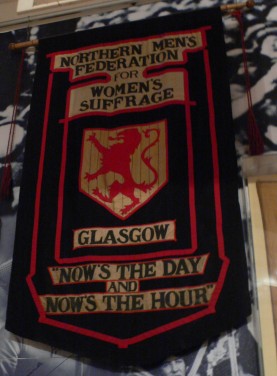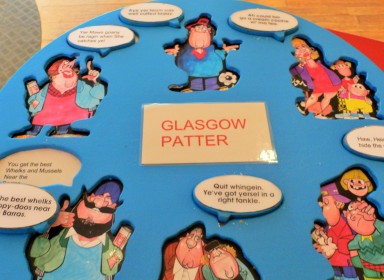I’m pleased to announce that I’ve had a piece published today in a special Father’s Day issue of Lothian Life Magazine. You can read it here: http://www.lothianlife.co.uk/2015/06/dear-dad/
Month: June 2015
What I learned about my writing process from attending the Tinder Press New Writer’s Evening
Last week I was lucky enough to be able to attend the Tinder Press New Writer’s Evening at Foyles Bookshop in Central London. It was a lovely event with free wine and pizza. They even had goodybags, filled with beautiful full colour postcards of their book covers, and a free book! I can’t wait to read The Other Side of the World by Stephanie Bishop!
The journalist, Anita Sethi, interviewed the three authors: Maggie O’Farrell, Sarah Winman and Sarah Leipciger about their creative process, how they write and when they began writing, as well as their individual paths to publication. Maggie O’Farrell is the author of six novels, including After You’d Gone, which I’d highly recommend, and Instructions for a Heatwave, which I’ve yet to read. Both Sarah Winman and Sarah Leipciger are fairly new novelists. Sarah Winman’s second novel, A Year of Marvellous Ways, about an 89-year-old woman who lives alone in a remote area of Cornwall, will be released on 18th June. Sarah Leipciger’s first novel, The Mountain Can Wait, about a single father living alone in the Canadian wilderness with his two children, was released in May. They both look to be excellent reads, which I can’t wait to dive into. You can read more about them here: http://tinderpress.co.uk/our-books/
For me, the most memorable part of the evening was when a man in the audience asked if any of the authors had ever read what they had just written and thought it was absolutely ground-breaking work. All three authors seemed to agree that, for them, and perhaps for women writers generally, it is more likely that they will have the opposite reaction to their writing. They tended to re-read what they had written and decide it was awful, and to overall be very self-defeating in response to it.
This was familiar to me, as it is how I often feel after reading what I’ve recently written. I would tend to agree with the writers too, that more women than men seem to have this response. I’ve known several women writers who tended to approach their work this way, often deleting whole chapters because they didn’t feel they were good enough. I did this myself for years, always deleting more than I wrote, not because this was my process but because I lacked the necessary confidence in myself as a writer.
Sarah Winman went on to say that to have either a grandiose or a self-defeating response to your writing, is indicative of a self-conscious writing process, and that self-conscious writing is the enemy of good writing. The best writing is the purest writing, and comes from deep within the author. She said that all artists need to have a good knowledge of who they are and a good relationship with themselves, because the work they do derives from their own individuality.
This reminded me of Julia Cameron’s book, The Artist’s Way, when she talks about the need for creative people to nurture their inner artist, or muse.
So, how can we get away from self-conscious writing? Getting into your ‘zone,’ or ‘bubble,’ as these authors called it, helps. But this can be difficult. Sarah Leipciger and Maggie O’Farrell said that they light a candle to help get into the right mood. Sarah Winman admitted to having to close the curtains at times, to keep from being distracted.
For me, getting into this bubble is about allowing my mind to turn inward, to the story I’m trying to create. Sometimes altering my environment helps, and sometimes it doesn’t. I’m more likely to achieve this when I give myself permission to write badly, even terribly, because for the time being, I’ll be the only one who will read it. And I’d rather end the day with 2000 poorly written words which I can revise, than nothing at all. It’s about letting go of my current reality and allowing the writing to take over, sometimes having very little idea of where it will take me. And, finally, it is about saving the editing for after the story is finished. Because editing requires a very different thought process to writing.
I’ve also discovered that if I have another task I’d rather not do, I can use writing as a way of putting that task off. Then my writing goes really well. 😉
How do you feel your best writing comes about? Do you think it’s necessary for writers to have a good relationship with themselves to write well? And, if you’re a woman writer, do you struggle with self-confidence issues in relation to your writing? I’d love to hear your thoughts, so please leave a comment below.
Thanks for reading!
If you enjoyed this post, consider subscribing to my blog by clicking on the ‘follow’ button on the right hand side of the page. Until next time. 🙂
Spreading the joy of reading
What better way to enjoy the long, hot summer days than by lounging outside with a glass of lemonade and your favourite book? Or, in winter, by curling up on the sofa with a mug of cocoa in one hand and a great novel in the other?
Reading is a holiday that everyone can afford. Books can transport us to other lands, to new adventures, they entertain and instruct, they give us new friends and allow us to identify with their characters, to realise that the world is so much greater than what we can know and see with our own eyes, though not so large as to be overwhelming. At heart, we all go through similar struggles and share the same joys. And it is through reading that we can come to realise this. Not that everyone needs a book to teach them this, but, for some, it helps. And it certainly doesn’t hurt! 😉
By opening a book, we’re opening a whole new world of possibilities. As we read—whatsoever we may choose to read—we deepen our language comprehension which aids us in other areas of life, such as communication and understanding. We may find our ability to understand the sometimes complex language used in official forms and newspapers, strengthened. And, if we happen to gain a greater understanding of people, history, science, or even ourselves in the process, so much the better.
For most writers, reading is a pleasure, a joy, and a much-coveted leisure activity. But, for others, reading may, at times, feel like a bit of a slog. Perhaps it isn’t something they are accustomed to doing, for various reasons. Or, perhaps it just isn’t something they’ve given much thought to, as they keep busy with other activities.
This is something that’s been on my mind for a while now. As a writer—and a reader—I’d like others to have the opportunity to experience the same joy and pleasure from reading that I do. Or, even if they do not enjoy it to the same extent that I do, they should at least have the chance to be exposed to reading in a positive way that honours them as an individual. Because reading is so often an individual past time, though it needn’t always be.
With my MLitt in its final stages, I decided that I needed to start looking for ways to become more involved in promoting literacy. After all, I’m now a published writer 😉 .
One of the ways which occurred to me was to do some volunteering with organisations which promote reading. Tomorrow I’m going along to a community reading group which takes place in a local library. Note that I said a ‘reading group’ and not a ‘book group’. All reading takes place during the session itself, with a passage read aloud and responded to by anyone who may wish to attend, book lover or not.
But there are lots of ways to promote literacy in your community, from volunteering to read at a local school, to participating in your local Bookcrossing scheme where you leave a book in a public place in order that someone else may find and read it (for more information on this scheme, visit: http://www.bookcrossing.com/ ). Promoting literacy can be as simple as reading to your child before bed, or helping an elderly neighbour pick up some titles from the local library, seeing as you were going there anyway 😉 .
So, how about you? Have you been to any reading groups? Or, are you part of a book club? If you’re a writer, do you think that we have the responsibility to promote reading and literacy in our communities? If so, what actions have you taken to do this? I’d love to hear your thoughts, so please leave a comment below.
If you like this article, consider subscribing to my blog by clicking on the blue WordPress follow button on the middle right side of the screen.
Thanks for reading! 🙂
Visiting Glasgow
Some of you may already know that I’m studying for the MLitt in Creative Writing at The University of Glasgow, via Distance Learning. During the taught portion of the degree, we ‘attended’ weekly classes through video conference software. Now we’re in the last stages of the course, where students are working on their final portfolios. My final portfolio is a novel, which I’ll be writing more about here in future.
Being a Distance Learning student, I’ve longed to have the full campus experience: research libraries, access to campus facilities and events, being able to meet with my professors and fellow students in person, and feeling part of the academic (and writing) community. It’s hard to feel a part of these things from a distance. So, before I began the course, I decided that I would visit the campus at least once.
Needless to say, this proved more difficult than I had previously envisioned. But, last week, my partner and I took a trip up to Scotland to see the campus, and do a little sightseeing while we were at it. I’ve only been to Scotland once before, and that was many years ago, so I had no idea what to expect.
The campus was beautiful!
We mostly stayed in Glasgow, but made a quick trip to Edinburgh where I met a friend for coffee and where we visited the National Gallery. I highly recommend it, and in future will make sure to plan more time there. From the little I saw, Edinburgh is a fascinating and gorgeous city. Edinburgh Castle overlooks the city making it feel like you are walking through a fairy tale picture book. This isn’t the best photograph, but you get the idea. 🙂
Oh yes, and this was helpful too. 😉
In Glasgow we visited the West End and Ashton Lane, and I did a lot of looking around on campus. Have I mentioned before how lovely the campus is? Here are some more pictures of it, in case you weren’t convinced. 🙂
And here I am, in front of the new Creative Writing offices (not the best picture, but hey!).

Of course, I also met with my tutor to discuss my portfolio work, and my course convenor, to discuss future possibilities. It was great getting to meet and chat with them in person.
We got to visit a few museums while we were there too, including The Hunterian Art Gallery, The Mackintosh House and The People’s Palace. They were all fascinating and loads of fun. I especially enjoyed the paintings by The Glasgow Boys in The Hunterian Gallery, and the intriguing, mysterious art of Margaret Macdonald Mackintosh (her husband designed much of the house but she was the hands-on artist whose work was largely neglected during her lifetime).
The People’s Palace and Winter Gardens is in Glasgow Green, a very different part of the city. The building itself is magnificent, and the Winter Gardens—actually a giant tropical greenhouse with a lovely cafe–is a great choice for a coffee or tea when you’ve finished with the exhibitions. I especially enjoyed the exhibitions on how Glaswegians once lived. Glasgow has always had a high rate of poverty, but it was once the case that you would get entire families living in a single room, and women washed clothes in what were called ‘Steamies’. Here’s a photo of one.
And a couple of the lovely banners they had on display.
This exhibit was also quite useful. If only I had encountered it earlier in the trip!
While I did not get to have the full campus experience, or even to meet many students, it was fun to see my campus, and to visit Glasgow. I will certainly be going back for another trip before too long. Oh yes, and I definitely want to spend more time in Edinburgh next time too! 🙂
Have you done a distance learning course? What was your experience of it? And have you been to Glasgow, or Edinburgh? What did I miss? What should I do next time?
I’d love to hear your thoughts, so please leave a comment below. 🙂
Thanks for reading!












